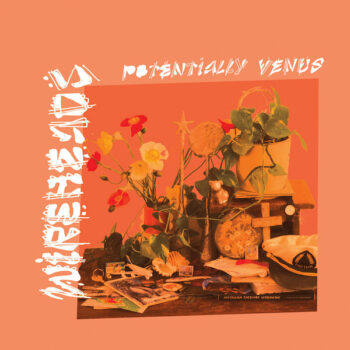
Sachet The Seeing Machine cassette
An indie rock quartet hailing from Sydney, SACHET offers a delightful and angular perspective on progressive pop. Their newest album, The Seeing Machine, was released as part of a pair of cassettes promising mellow melodies, carried by the sweetness of the vocalist. Her light voice paired with the jangled instruments makes for a great carefree atmosphere, detailed by Nick Webb’s wah pedal, Kate Wilson’s bubbly drums, and saccharine lyrics. “Redecabbaged” and “The Lodger” capture the essence of airy post-punk imbued into the album, similar to the CARDIGANS in mood but distinctly alternative. A great addition to their discography, this third release, running short of fifteen minutes, unfurls a welcome mat to those looking for some good fun.



